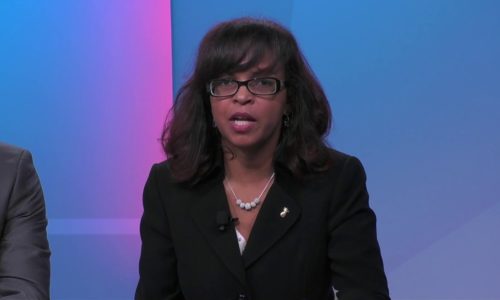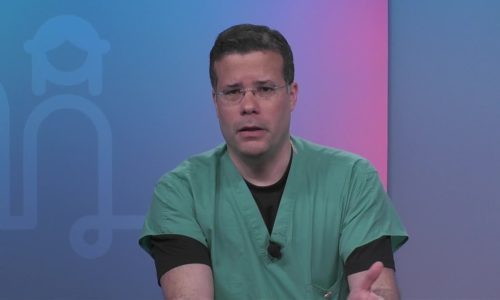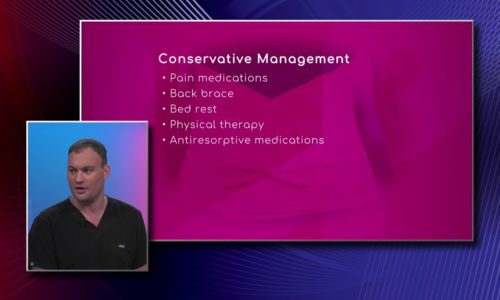Herniated Disk Symptoms and causes |
A herniated disc occurs when the disc that sits in between the bones and, from a specific injury, part of the disc can bulge out and push on the nerves roots that come out of the hole of the spine.
Dr. Derek Papp, Sports Medicine Physician with Miami Orthopedics & Sports Medicine Institute, explains when that happens, the patient gets a lot of symptoms such as: severe back pain, numbness and tingling.
Dr. Papp explains with a digital imaging how a herniated disc happens in baseball players.
Transcript
So Prince Fielder is a famous baseball player, whose career ended prematurely due to him getting herniated discs in his neck after his second surgery, his doctor declared him medically disabled I could no longer play, so what our herniated disc?, let’s go to the BioDigital. >Oh a herniated disc is when basically what happens in this model is, you’ll have a disc that sits in between this bone, and overtime or from a specific injury, part of the disc can bulge out and push on the nerve roots that come out of this hole here, when that happens you get a lot of different kinds of symptoms, so you can get real real severe back pain, but the other important stuff that can happen, is it can damage those nerve roots so that you have numbness and tingling that runs all the way down your leg, those are the kind of things that actually will… That’s an instance where you can treat that surgically to decompress the nerve, because that’s an instance where that matters, you know that, when you’re having that kind of weakness, and you can make that better surgically, then there’s an actually an opportunity to intervene and make that person better.> And I feel like herniated discs Dr. Pat ,but correct me if I’m wrong, are very common in regular people like you and I but, why does this happen specifically in athletes?, and in this case a baseball player.> Well it’s the same thing that happens for you and me, you know, what I hate to say you know we were getting older, everybody gets older, and everybody’s growing up you know through their 60s and 70s, but what happens is this disc here on the outside here that kind of holds everything in place, it kind of dries out, and it gives the what’s called the nucleus pulposus here, it gives it the opportunity to kind of push its way out, and when that happens that’s when you get what’s called it, you know that’s when you get your slip disc, it’s something that happens in time whether or not you play sports or not, but again athletes are people who put a lot of impact on their body so they’re a little bit higher risk.








